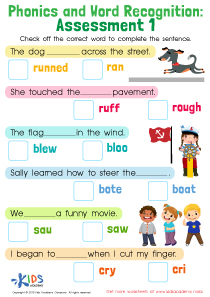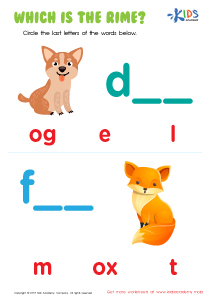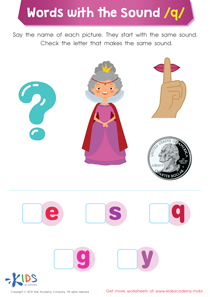Easy Letter Sounds Worksheets for Ages 4-7
6 filtered results
-
From - To
Discover the world of phonics with our "Easy Letter Sounds Worksheets for Ages 4-7"! Designed to boost early reading skills, these engaging worksheets help young learners identify and pronounce each letter. Perfect for children ages 4-7, these activities combine fun and education to reinforce essential literacy skills. Our worksheets feature bright illustrations, interactive exercises, and easy-to-follow instructions that will keep your little ones engaged. Ideal for both classroom use and homeschooling, these resources make learning letter sounds an enjoyable adventure. Start your child’s reading journey today with Kids Academy's expertly crafted worksheets!
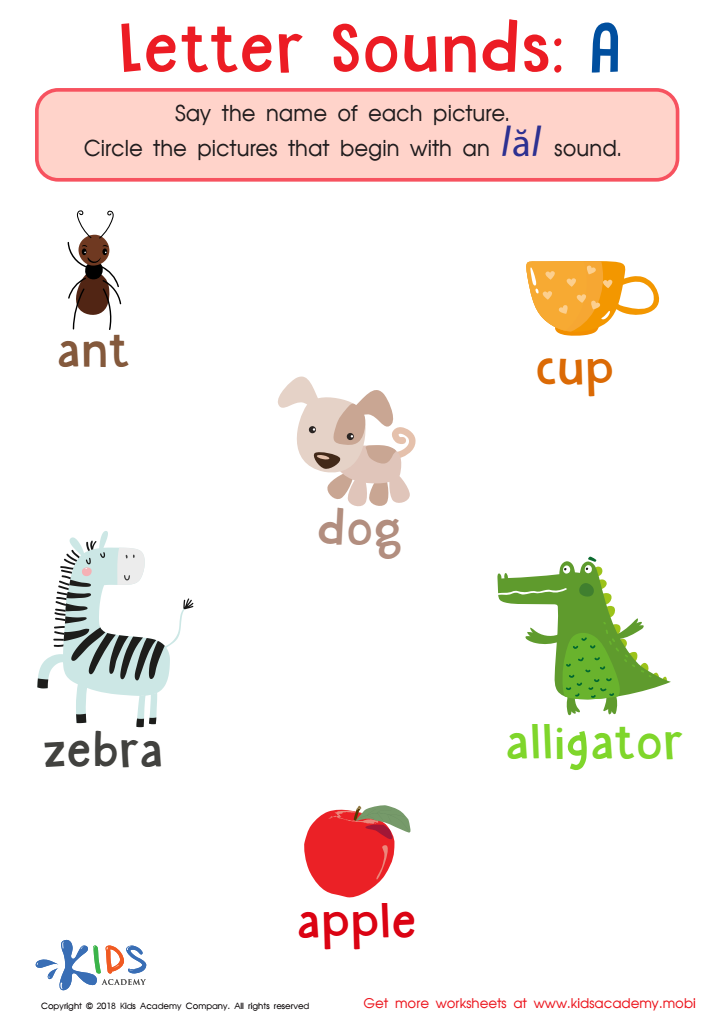

Letter A Sounds Worksheet
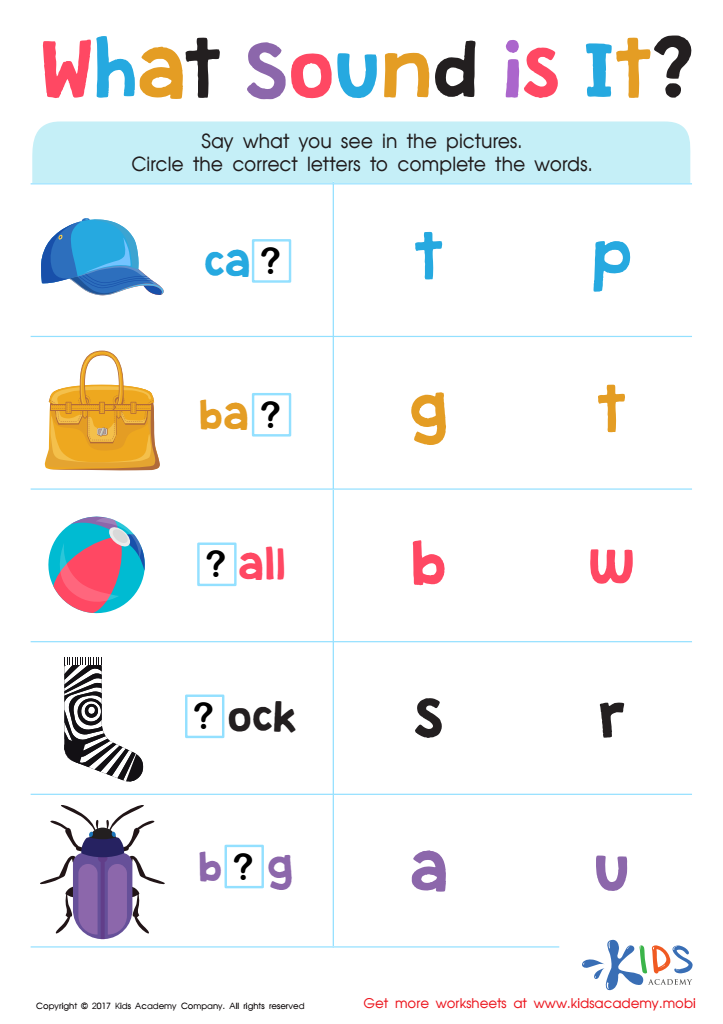

What Sound Is it? Worksheet
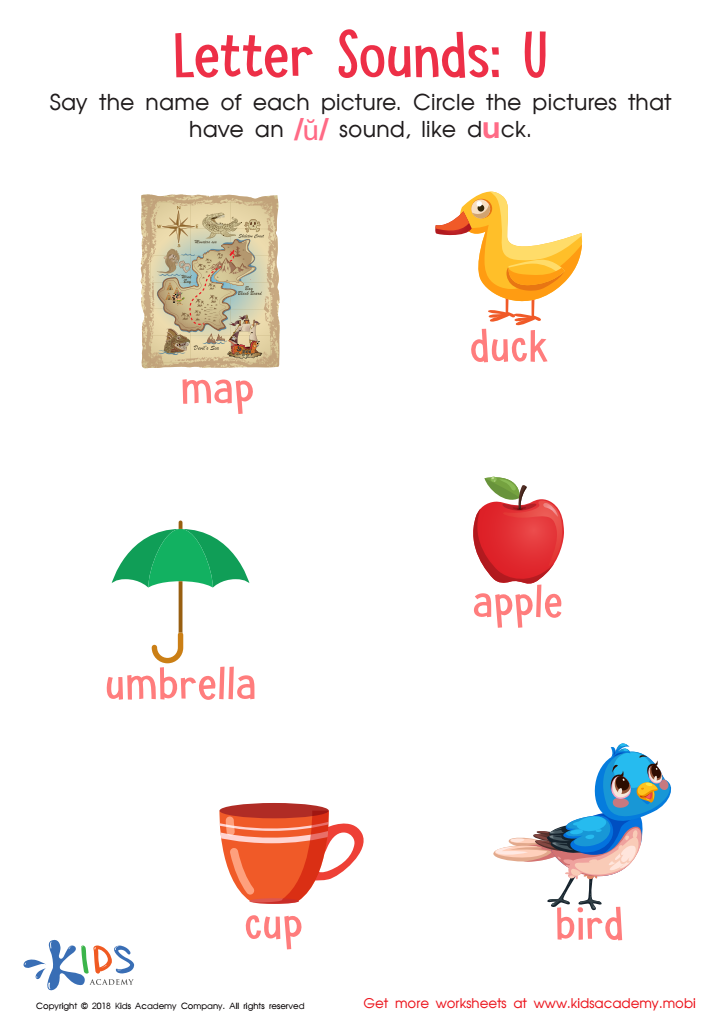

Letter U Sounds Worksheet
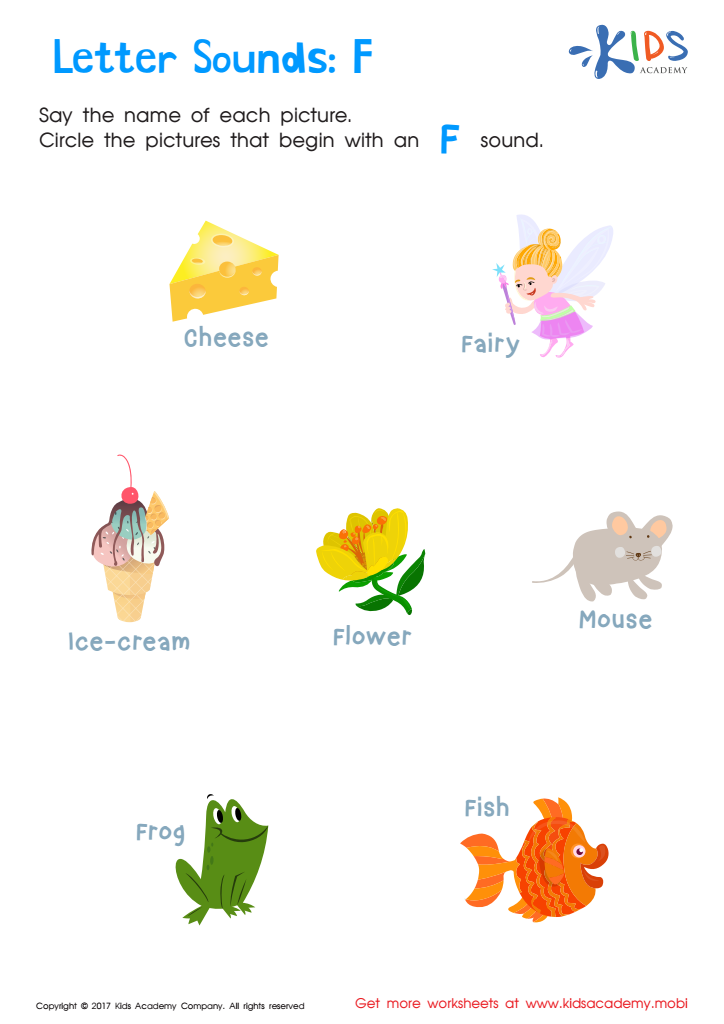

Letter F Sounds Worksheet
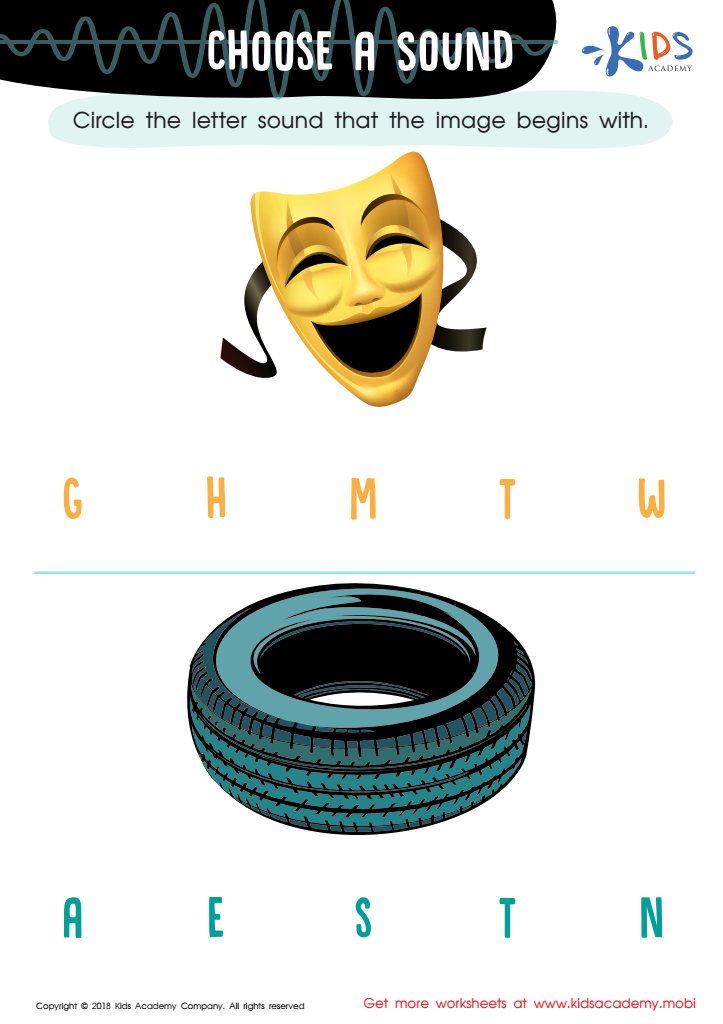

Choose a Sound Worksheet
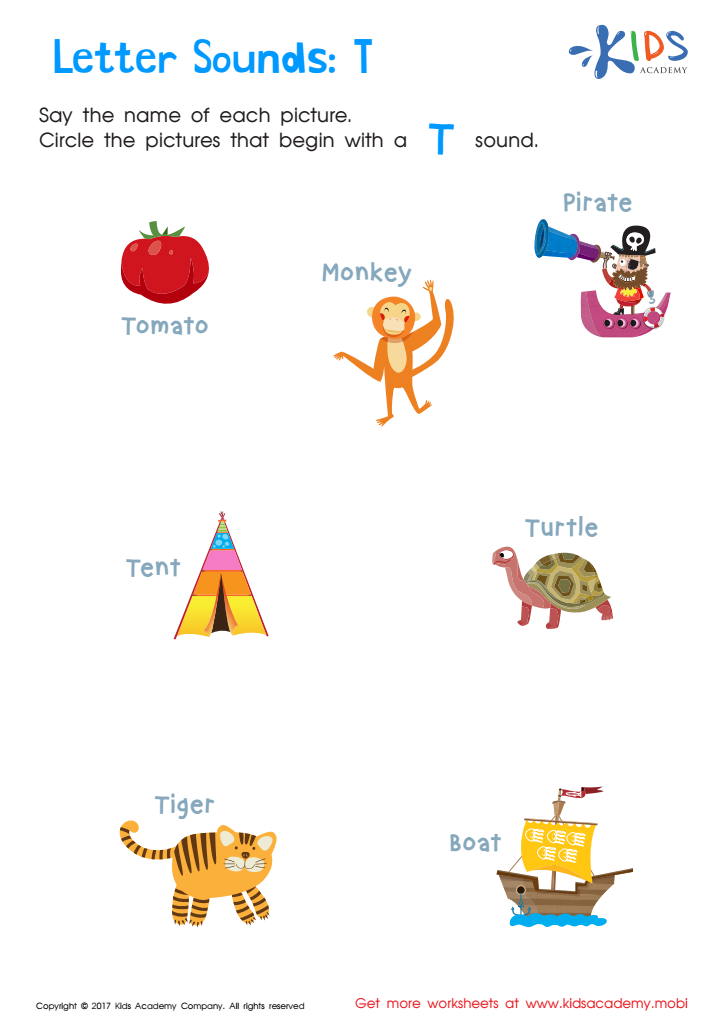

Letter T Sounds Worksheet
Parents and teachers should prioritize Easy Letter Sounds for children aged 4-7 because this fundamental skill forms the cornerstone of early literacy development. During this critical age window, children are highly receptive to learning and their rapid brain development enables them to absorb new information with astonishing speed. Mastering letter sounds is essential for phonemic awareness—the understanding that words are made up of individual sounds. This awareness is crucial for future reading and spelling abilities.
When children can recognize and produce letter sounds, they begin to decode words, paving the way for fluid reading. This early proficiency boosts their confidence and fosters a love for reading, an essential lifelong skill. Research shows that early literacy skills are strong predictors of academic success in later grades. Phonemic recognition helps children in identifying word patterns, facilitating smoother transitions into more complex literacy tasks such as comprehension and critical thinking.
Furthermore, early exposure to letter sounds contributes to better communication skills. Children will be more articulate and have improved vocabulary as they become more adept at identifying and using words effectively. Prioritizing Easy Letter Sounds ensures that children gain these foundational skills early, setting them on a path toward academic readiness and success.
 Assign to My Students
Assign to My Students









